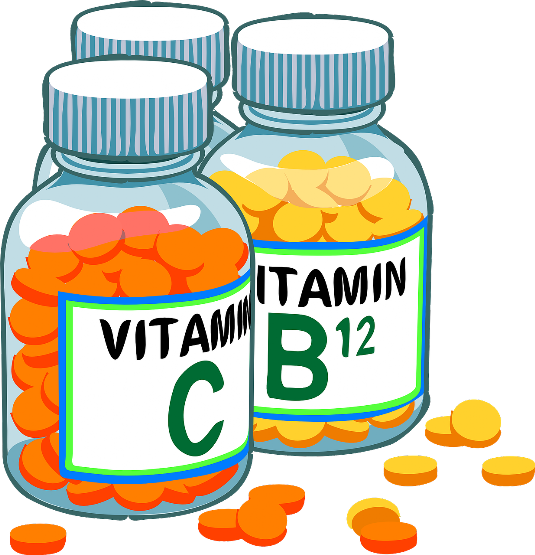To Supplement or Not?
More info : > Inspiration + Happy Clients!
Published by Mark Hayward in nutrition · 13 July 2023
Tags: Health, Aylesbury
Tags: Health, Aylesbury
First of all we all need vitamins, they are essential to life. They are a small group of substances that are needed in tiny amounts for the body to function correctly. Most of them cannot be made by the body and have to come from our diet.
However some people think that by megadosing on vitamins they don’t have to bother watching what they eat. They mistakenly think- junk food + vitamin pills = good health.
Others try their best to follow government health advice on recommended daily amounts. They realise they may fall short of the RDA and take vitamins as an insurance policy against this.
In laboratory studies vitamins C and E have a powerful mopping up effect on 'free radicals' that are linked to many medical conditions such as cancer and heart disease.
However many studies have shown that vitamins from supplements do not act on the body in the same way as vitamins from foods.
Are the pills the same thing?
As an example apples are a rich source of vitamin C, which fortifies the immune system. However when researchers at Cornell University in New York compared the effects of apples and vitamin C tablets, the results were not what was expected.
The apples contained many other naturally occurring chemicals as well vitamin C, such as antioxidants called flavanoids and polyphenols that may offer protection against cancer.
In short this means that eating a small apple (100g) gave an antioxidant effect the same as taking 1500mg of vitamin C (which is a lot in one go!).
One of the studys authors, Professor Chong Yong Lee, said: 'Some of the chemicals we found in apples are known to be anti-allergenic, some are anti-carcinogenic, anti-inflammatory and anti-viral. Now I have a reason to say an apple a day keeps the doctor away.'
A 2004 Cochrane review of studies found there was insufficient evidence that a 2000mg vitamin C supplement prevented colds in the general population. Worse still a US Women's Health Study found a link between vitamin C supplements and a greater risk of hardening arteries in some people with diabetes.
A balanced healthy diet works best
Calcium is essential for those in their teens or early 20s to protect against osteoporosis (bone thinning) when they get older.
Supplements will not make up for a lack of calcium when you're young.
Supplements will not make up for a lack of calcium when you're young.
Dietitians, nutritionists and other experts are all now accept that apart from small groups of people with special medical conditions, vitamins or food supplements are not necessary. We can get everything we need by eating a balanced diet.
As I have said many times if you want to be healthy and lose weight increase your fruit and vegetable consumption! Eat your five portions a day.
When they are needed:
The elderly may need to take supplements if the following apply:
- problems eating due to loss of appetite.
- dental difficulties.
- problems with swallowing or digestion.
- being housebound.
The following groups of people may need to take vitamin supplements:
- Women who are planning to get pregnant or have just become pregnant should take a daily supplement of 400mcg folic acid.
- Those who see little of the sun and are housebound may need vitamin D.
- Vegans who never eat meat or dairy products may need to take vitamin B12.
- People who are malnourished- they may have been ill, or have difficulty eating or swallowing for medical reasons. It can include people who have been restricting their food in order to lose weight. Dieters should think of eating more fruit and vegetables to avoid any vitamin deficiencies.
- People who are doing intense training for sport.
In these circumstances a low dose multivitamin and mineral could be appropriate.
Dangers
Megadosing vitamins can also have have toxic effects.More is not always better.
This is especially true of fat-soluble vitamins that will be stored in the liver, such as vitamin A. They may eventually reach toxic levels and cause liver damage.
